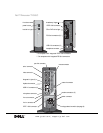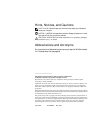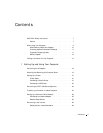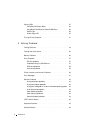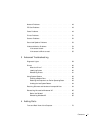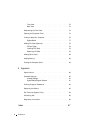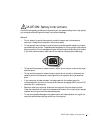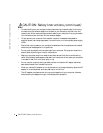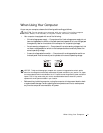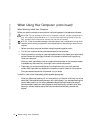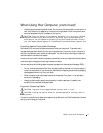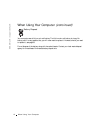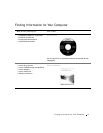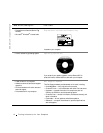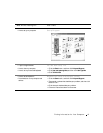
8 CAUTION: Safety Instructions
www.dell.com | support.dell.com
• To avoid shorting out your computer when disconnecting a network cable, first unplug
the cable from the network adapter on the back of your computer, and then from the
network jack. When reconnecting a network cable to your computer, first plug the cable
into the network jack, and then into the network adapter.
• To help protect your computer from sudden, transient increases and decreases in
electrical power, use a surge suppressor, line conditioner, or uninterruptible power supply
(UPS).
• Ensure that nothing rests on your computer’s cables and that the cables are not located
where they can be stepped on or tripped over.
• Do not push any objects into the openings of your computer. Doing so can cause fire or
electric shock by shorting out interior components.
• Keep your computer away from radiators and heat sources. Also, do not block cooling
vents. Avoid placing loose papers underneath your computer; do not place your computer
in a closed-in wall unit or on a bed, sofa, or rug.
• Do not use your computer during an electrical storm unless the AC adapter cable has
been disconnected from the electrical outlet.
• When you use the AC adapter to run the computer or to charge the battery, place the AC
adapter in a ventilated area, such as a desk top or on the floor.
• The AC adapter may become hot during normal operation of your computer. Use care
when handling the adapter during or immediately after operation.
CAUTION: Safety Instructions
(continued)



